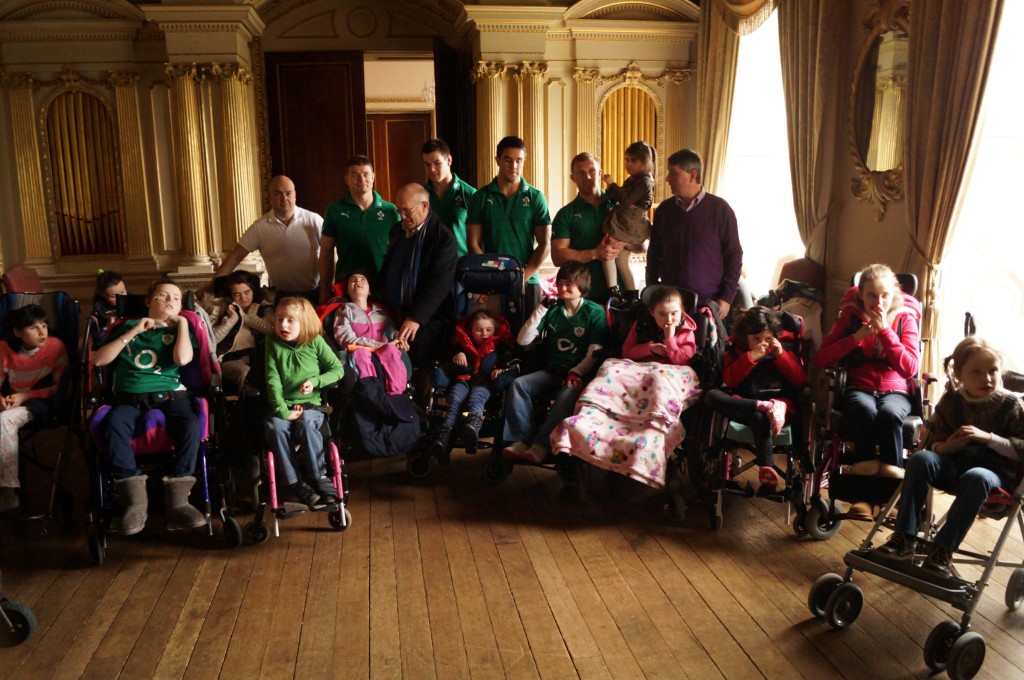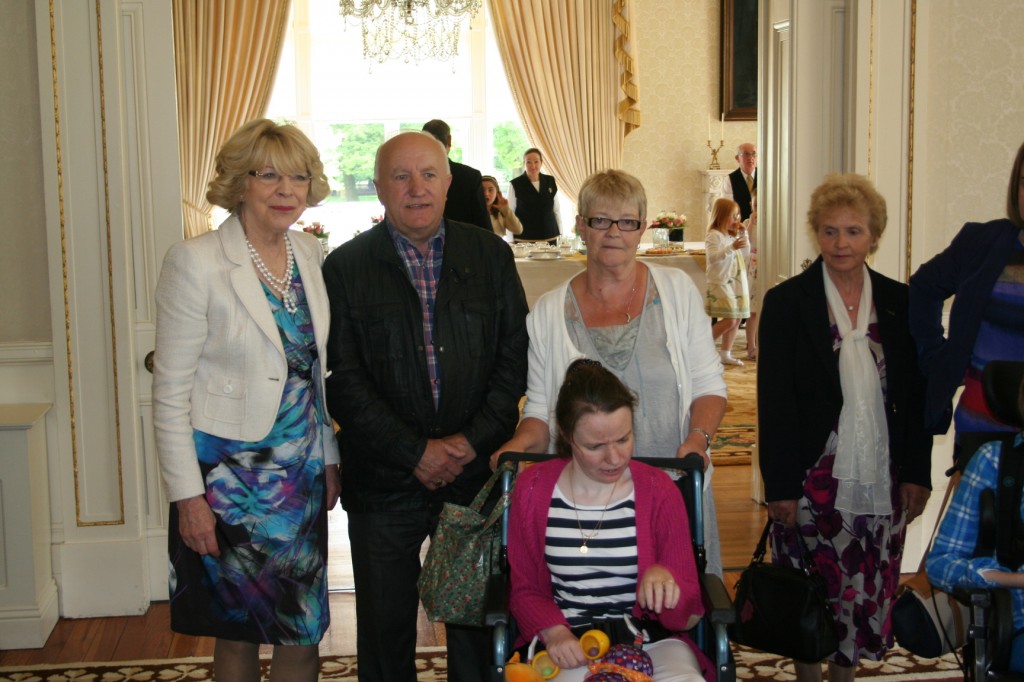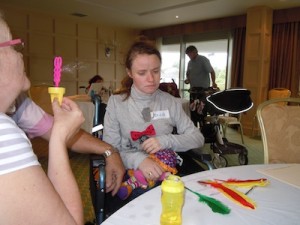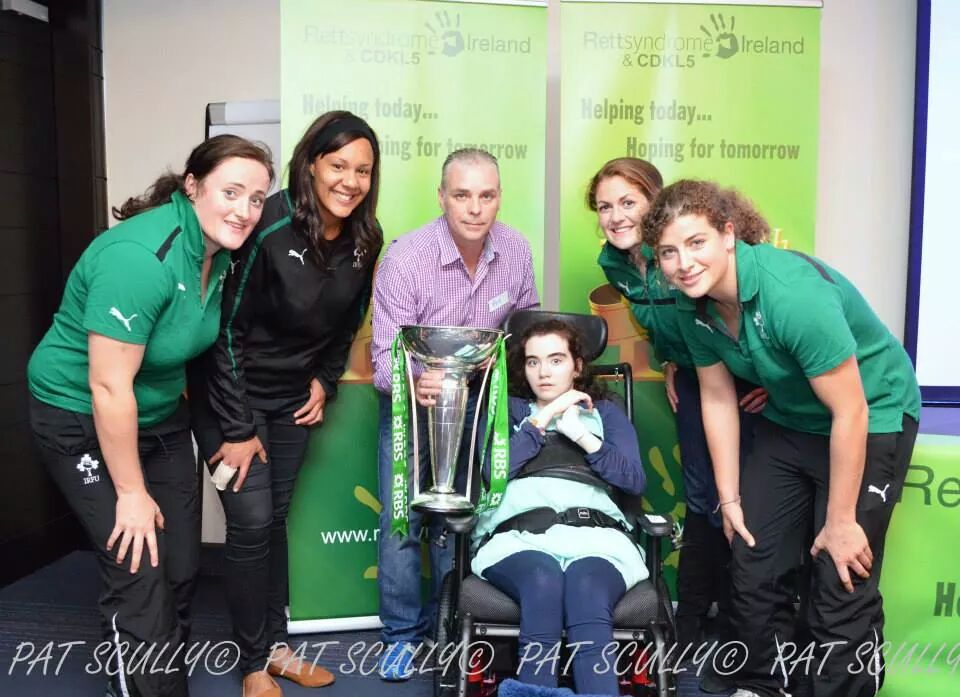Living with Rett Syndrome
Have you recently got a diagnosis?
The weeks and months after getting a diagnosis can be upsetting, confusing and even frightening. You have many questions so you check out books and websites like this one. That can be frightening in itself. Almost every thing you read can be worrying. There seem to be so many issues, so much to learn, so many things that can go wrong.
It’s not the end of the World.
You’re going to be living with Rett Syndrome for a while. There are, unfortunately, no quick fixes, no easy solutions. It’s about managing. Every Rett person is different. They are affected by the condition in different ways – some very profoundly, some less so. So as you read bear in mind that some of these issues might not affect you at all, some only a little and others quite a lot.
Always remember: Your child is still your child. Her smile is still her smile.
What this section will try to do is introduce in very basic way some of the issues involved. We also offer some short introductions to some of the therapies that can help your child. These are only pencil sketches that try describe what each person does, something that might help when you meet them for the first time.
Very few of the issues we discuss in this section happen as quickly or as suddenly as the diagnosis. Most are things that happen over time.
Deep Breath then…
As well as all the usual childhood ailments your child may suffer from a variety of other issues. Some you will manage on your own, others will need medical or other supports.
Chances are your child will need Physiotherapy, Speech Therapy and Occupational Therapy. She will definitely need a School, and you need to decide between a National School and a Special School. You will need a good G.P., a Paediatrician and possibly a Neurologist. She may get benefit from a Musical Therapist, a Play Specialist and she may need Standing Devices, a hoist, a Wheelchair, you may need to make alterations to your house and make special arrangements for getting her to the bathroom in comfort and dignity. You may need help and support in the home and you will need help and support from friends and family. You may need to have a car specially adapted for her and her needs.
It’s quite a list. Add to that, it’s not complete. Moreover, Rett Syndrome is a rare condition. Most people have never heard of it, many of those who have won’t know very much about it.
Where can you go for help?
For medical issues you start with your GP. He or she may know little about Rett but they will be able to help you manage many of the issues that arise, or refer you onwards to specialists with greater knowledge. But your GP is your starting point. In the Irish Health Service Consultants have enormous power and having a good one on your side is a great asset. Remember, you’re not married to either your GP or your Consultant. If you feel that you might like to meet others you are perfectly entitled to.
Welcome to the Mystery Dance.
Unfortunately there is little standardisation in accessing other services. Most areas will have an Early Intervention Team for pre-schoolers. Access to this varies from region to region. Public Health Nurses, GPs, Consultants or Social Workers are known to provide referrals, but there is no clear path to this team that works everywhere in Ireland. The local HSE office should be able to point you in the right direction.
Once School starts most services will be accessed in that way. Some parents will prefer their child to attend a National School, but the services provided in the Special Schools are often more appropriate for a child with a disability. It’s well worth contacting the schools in your area and asking to meet with them to see what’s on offer and how they might serve your child’s needs.
However, how you access the support you need varies from area to area. Some services are provided by the HSE, some are supplied by other agencies under contract to the HSE, some are supplied by charitable organisations. Trying to negotiate the pathways to support is can be a complex and mysterious dance. Which brings me to the next point…
You Have To Ask.
It should be quite simple. You get a diagnosis from a Consultant. That Consultant should then register the diagnosis with the HSE: “Here is someone with a conditions that requires support from you…” A little time later a link worker arrives at your door and starts getting things going.
Unfortunately, it’s not like that. You have to ask for everything. You have to ask, sometimes many times. You have to apply, request, sometimes demand… You have to be polite of course, but sometimes very firm.
Get used to asking, applying, requesting, agitating and being firm.
Most of the people you ask will support you. Most of the front-line public servants, most of the doctors and nurses, the therapists of every kind who work directly with you and your child will know the things that you need and will work to help you get them. Like you they will be frustrated by a system that can be slow, opaque and complex.
There’s other help too. Information is key. The Internet is full of information – but one tip: it can overwhelm you. There’s an awful lot of stuff out there and you’re best taking it in, one bit at a time.
Networks, like Rett Syndrome Ireland, are a great resource. There are many, and you can belong to many as you want. There are Networks online. Networks in the real world too. There are ones that specialise in Rett, others that aim to support people affected by disability in general. Opportunities to learn from other parents, other carers, are extremely valuable. These are the people who have been there before and know the shortcuts. They know how to ask, apply, agitate and demand already.
Families are a great source of support. Friends are too. And while there may be one or to who let you down, who can’t cope for some reason, you’ll find a lot of people will step up for you and you child in some way.
But you have to ask. Sometimes, your friends and family want to help but they don’t know how to help. You need to explain to them what you need. You’re already the world’s greatest expert on your child, and soon you’re going to know a lot about managing Rett Syndrome. Other people won’t know very much about either, so you have to teach them. Some of this is very obvious – special dietary requirements, protocols for medicines and so on – but others you might not think of. How does she play? How long does she play with things before she gets tired? Does she have particular routines?
Networks of family and friends are very important for another reason: you can’t always be there. There are other draws on your time – other children, other family members will need you. Stuff happens. A sibling falls off a bike and you spend hours at the hospital getting an ankle strapped or an arm in plaster. A parent is ill. You get sick yourself. Knowing that you have some people you can trust, who you can rely on, who know your child’s routine and requirements is a great comfort at times like that.
It might even help you get away for a weekend every now and then.
Sometimes it’s all about muddling through
We all want to be Super-Parent but none of us are. We can’t know everything there is to know, we can’t mind-read, and much as we like our children to believe otherwise, we don’t actually have eyes in the back of our heads. Caring for someone with Rett Syndrome will throw up surprises – good and bad – from day to day and week to week. No one can find the perfect response to everything that comes along the way. Some days the very best you can do is muddle through somehow. Some days muddling through is the only option available to you. You can do your best and no more. Don’t be too hard on yourself.
And always remember: Your child is still your child. Her smile is still her smile.





